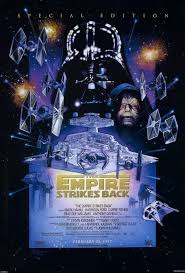1960's Haight-Ashbury
The Doors
Theory of Simulacra and Simulation
The Parallax View
This should have been one of the most interesting classes in the world. As someone who is highly interested in cultural icons, there symbols and the interesting ways in which they enter our lives, I couldn't wait to jump in. But, frustration was the primary outcome.
I am frustrated with this class because we never make a point. We talk. Everyone talks. My notes are a mixture of "notes to self", thought bubbles, tally of how my times my professor mentions Bob Dylan (5 last week, 2 yesterday) doodles and word webs. Everyone says a lot of very interesting highly intelligent words, but never really says anything. I sit there convinced that it's all an elaborate hoax. Everyone is just speaking in circles, with extensive vocabulary, to accomplish nothing but impress upon everyone else that they are highly evolved intellectual beings. The urge to stand up and scream, "SERIOUSLY?!" is almost overwhelming. As a result I sit there silent. I will probably fail in participation points. But, this occurred to me....
We read an essay entitled, "The White Album" by Joan Didion -- great read, highly suggested! in which she describes an anti-climatic moment while witnessing The Doors record in a studio. She describes each member as a regular person, includes chit chat about this and that, nothing of any importance. She describes how they all have to wait on Jim Morrison to show up, but once he does no one acknowledges the fact that he has finally arrived. Eventually, she gives up and leaves with the sense that they would be there forever, doing nothing but being regular people.
| Iconic image of Jim Morrison |
Then, we watched a clip of The Doors performances during which the spirit of sex, drugs and rock-n-roll was at it's peak; Jim Morrison being arrested on stage, people protesting their lyrics, fans attacking him. You know, what you think of when you think of The Doors. What you see when you think Jim Morrison (bet it's the picture above, and some black leather pants)
I thought of how this plays into the theory of the symbol becoming the reality over the actual reality. (the symbol of The Doors as a band vs. the members of the band as people) The clip of The Doors, wild and crazy, on drugs, being pure rock-n-roll, is what is reality to me (having not lived during this time period-- ) and I wish we still had it.
I enjoy the music of The Doors, and find Jim Morrison an interesting cultural iconic character. I enjoy the cultural and historical relevance of Morrison, just as I do The Beatles, Elvis and Michael Jackson. And I wonder what has happened to this type of cultural relevance. Are we left with Britney Spears and Katie Perry. (let's hope not)
This should have been a profoundly interesting class.




